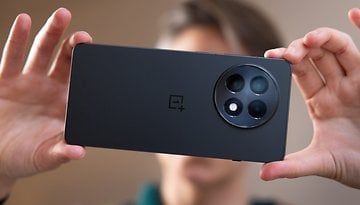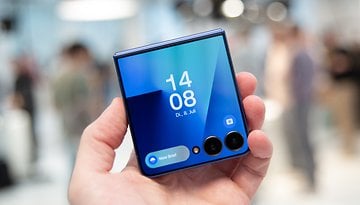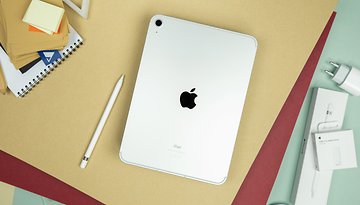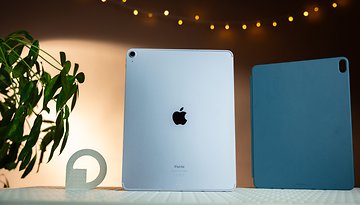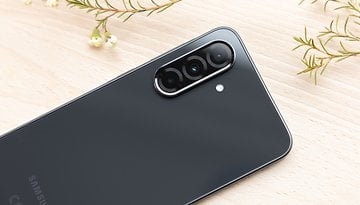Slack Fight: Should we pay for Android Premium?
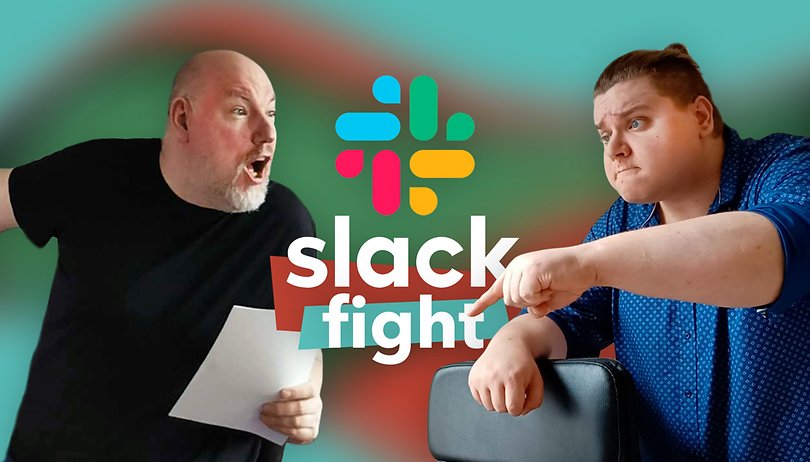

Bloatware and ads are a dime a dozen on cheap smartphones, in addition to the eternal hope of waiting for Android updates. What if we could change all of that with a paid version of Android Premium? Antoine and Casi disagree on the matter and duke it out in the NextPit arena in a heated Slack argument.
The NextPit ring was getting a little dusty, as it has been a while since we've had a duel here. But now, it is that time again: I officially challenge Antoine to another round of our NextPit slack fight! As always, it concerns a tech topic where we have completely opposing opinions. Now, before I squeeze into my superhero gear to head into battle against Antoine, let me provide you with a quick overview of what it is all about.
A paid version of Android: The solution to all our Android problems?
Imagine picking up your bloatware-clogged and ad-infested mid-range smartphone where you pay a monthly subscription fee and voila! The smartphone no longer offers ads and other unwanted bloatware, while sporting new features and regular software updates! These updates are also available for not just two, but all the way to five years!
Would that be a model worth striving for or is it simply a pipe dream? Antoine and I have very different views on this, so let's get this fight into the ring and clear the stage for round 1!
Round 1: Expensive smartphones have their price, cheap ones too
Casi: Hey Antoine, I recently read a text somewhere about some kind of "Premium Android", i.e. an Android version that you have to pay for which also gets rid of all bloatware and advertising on budget smartphones. Wouldn't something like that be totally awesome?
Antoine: Yeah, yeah, I think I read the same article as well. It's an interesting angle, but presenting this potential reality without any critical thought or cynical view is a really dangerous thing, IMHO.
As you may have guessed, I am largely, not 100%, but largely against this idea of a premium subscription for Android. I do not think that software updates and features should be presented as DLC. At the very least, not hidden behind a paywall for selected users. A smartphone is a product, not a service. A subscription-based software upgrade would only bring temporary benefits in terms of pricing, but would be detrimental in the long run, especially when it comes to the UX (user interface) and customer service.
Casi: Haha, I almost expected that idea not to receive any traction from you. You've already mentioned a ton of points, so I'll take a look at them in order. Let's first talk about the pricing issue that you brought up: Such pricing is often associated with companies like Xiaomi where they offer really good quality hardware at surprisingly low prices.
Check out our article about the best Xiaomi models of the year and have a look at the prices of current Xiaomi smartphones:
The best Xiaomi smartphones recommended by NextPit in 2021
These low or highly affordable prices are made possible only if the manufacturer subsidized it in one way or another. That's why they like to fill our smartphones with bloatware that no one needs, but it's crucial for Xiaomi (and its cohort) to maintain affordable pricing. I understand that they have to turn a profit, but that's where a subscription model for a premium version of Android becomes a possibility: We pay a small amount each month and in return, we receive a nice, clean device that is free from bloatware and annoying ads. Let's not forget that bloatware is also accompanied by its fair share of advertising. Sometimes, you have them on the lockscreen itself, in the apps, and even in the notification bar or in the settings. Wouldn't it be a fair deal to get rid of all that for just a small monthly fee?
Antoine: I understand that point. I understand the desire to pay for convenience. But that's exactly the kind of trap that manufacturers exploit, which is why I hate this entire business plan in the first place.
I mean, what's the main argument here? "People want cheaper smartphones with better specifications". So OEMs had to cut costs on software in the past, right? That's why mid-range smartphones don't get updated as long as flagship models and also lack the special features found in flagships, or they include bloatware and/or ads, like you mentioned.
But if cheap hardware has to make sacrifices in the form of less polished software, why should I pay more just to enjoy a barely decent user experience, huh? Why not just pay just a few more dollars right from the very beginning to obtain a superior handset in all aspects and a clean, ad- and bloatware-free smartphone ? Huh? TELL ME, CASI!!!!!.
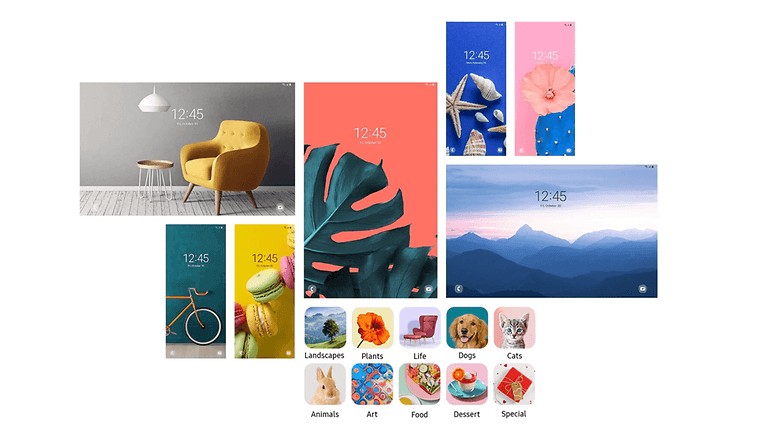
What bothers me about this concept of premium Android is that you're basically paying for the manufacturer to remove software restrictions that they've decided to include in the first place. I don't mind paying more for more, but I'm not going to pay to get the same thing that I should have received when I purchased the product in the first place.
If Xiaomi or Samsung wanted to add features to the UI of their smartphones just to compensate for the "alleged" loss of revenue from selling me a cheaper smartphone, then I don't want their silly cheaper smartphone. I would gladly spend more to own a device that doesn't force me to deal with all this crap. The customer shouldn't be punished with crappy software in the first place because they don't want to fork out $1,000 or more on a smartphone!
Casi: Okay, I can actually understand that when you ask why manufacturers don't charge a reasonable price for decent products in the first place. But you can't put the genie back in the bottle. In the meantime, we expect to purchase a smartphone for $300 or $400, with which you can snap decent pictures, play some games here and there and, of course, surf the Internet and be on social media at all times. If a manufacturer were to suddenly charge a Benjamin more without anything noticeably different apart from the lack of bloatware and advertising, people would simply move on. They would proceed to pick up a smartphone from another manufacturer that still charges a cheaper price.
Have you EVER seen people say things like, "This was previously free and suddenly it costs so much more? That sounds like a great idea!"??? No one ever says anything like that!
As for the additional features that manufacturers are including in their UIs, I'm ambivalent about this matter. On the one hand, there's a lot of stuff that we don't need, but there are also useful features that will later make their way into the Android platform on a regular basis. Samsung, Xiaomi, and others are the ones that drive the development here. As for the decision whether I like the interface or not, I am the one who will end up making the decision before picking it up in the question of a premium Android version. My point is, we can make a decision whether we want to live with advertising on the smartphone or not. Take Amazon's example: A Kindle comes with advertising, and the same device is offered for $20 more without any advertising. Sounds like a reasonable concept, doesn't it?
Antoine: Your example has its weaknesses at some points. If Xiaomi suddenly decides to raise the price of its mid-range smartphones because they don't contain ads and bloatware, that would obviously be a bad move for them. This is because another Chinese OEM would be waiting to replace them almost immediately.
The one thing that you did not seem to take into consideration is, most manufacturers rely on their mid-range catalog. It's not just out of generosity that Samsung decided to update the Galaxy A52 for 4 years, which is on par with its flagships. This is because Samsung knows that it sells more units of the Galaxy A52 than it does of, say, the Galaxy S21.
So you're confusing this fine balance of power. Manufacturers don't sell affordable smartphones to do favors for their customers. Manufacturers NEED affordable smartphones because 99 percent of their customers won't pay more than $300 for a smartphone.
So it's not the consumer's responsibility to help the manufacturer make a profit because they are losing money so that we can have affordable smartphones.
It's the manufacturers' responsibility to make sure that affordable devices remain attractive, not just through hardware, but also through software, because otherwise people wouldn't buy their other offerings.
Charging me extra to compensate for limitations imposed by the design of my device strikes me as extremely deceptive behavior. They are monetizing the solution to a problem that they themselves have created simply for monetary reasons.
Round 2: We need fast, regular, and long updates
Casi: Okay, let's talk about software then. Because you're right: After all, it's not just about the ads or any pre-installed bloatware. I just imagine the very best of Android, where premium Android will guarantee security and software updates.
- Not having to wait for half a year or more for a new version of Android to arrive on my smartphone!
- Monthly security updates instead of once just every three or six months!
- 5 years of guaranteed software support instead of discovering after two years that you have a fully functional smartphone but the software is outdated!
I would pay a monthly subscription for such a service, where the smartphone manufacturer uses the subscription to fund the team behind these security and software updates. It sounds like a reasonable business model to me!
You'll say, "Well, why not let them include better software in the first place?", but that's not how it works. Development is progressing at neck-breaking speeds and we can do things with our smartphones today that we couldn't just three or four years ago. So if you had paid $100 more back then, they still wouldn't have been able to implement the new features that are available today.
Recently, we asked you in a survey about Android updates:
Poll analysis: Yes, you're into updates!
Antoine: I can imagine paying for new Android versions. I mean, do you pay for new versions of Windows or macOS? Don't get me wrong, I don't WANT this kind of system at all. But if it means receiving updates for the next 5 to 6 years without any further delays, why not?
But why? Why, Casi? Let's say I pay $300 for a smartphone. I have 2 major Android versions and 3 years of quarterly security patches "for free". How would you place a value on 3 more years of software support? How much does it really cost? How many subscriptions would a manufacturer need to fund the manpower and R&D over all those additional years?
Even if the subscription costs only $10 monthly, that's $120 annually. If you were to pay for an additional three years, that's $360, on top of the $300 that you originally shelled out for the smartphone.
So again, sorry to be the annoying boomer who keeps repeating himself, but WHY NOT PAY MORE?
Do you really think the low initial entry price of a smartphone and splitting the support costs via a subscription system makes the overall ownership cost more acceptable than if you were to pay everything upfront?
Casi: Fortunately we don't have to work out the pricing model, my dear Antoine. The manufacturers themselves should sit down and think about what kind of price structure works. Take a look at what our smartphones are capable of and you'll see that there are very smart people with lots of ideas.
They should get a little creative and come up with new features for their premium customers in addition to a pricing model. Many users are already overwhelmed with their smartphone functions. So why not offer a more rudimentary version of Android for the average user and a feature-laden one for paying customers?
After all, we live with a free version of Spotify in exchange for ads and fewer features. Then for Spotify premium, there's a whole cornucopia of features. Why shouldn't that model work for Android as well? It might even have the side effect of making the "basic Android" faster to update in the future because it's not so full of features.
I know you're going to tell me that they should charge more money right from the get-go instead of relying on a subscription model.
But let's not forget that mid-range smartphones are also selling so well because simply people either can't afford or don't want more expensive smartphones. If people wanted to buy something more expensive, it's often under the guise of a subsidized contract. I pay $20 more on top of my regular phone bill and get a nice, premium smartphone of which I couldn't afford if I had to pay the full price right now.
Asking this question to the man on the street whether people would be willing to pay a fiver each month for a premium subscription or if they would rather pay $180 more at the time of purchase, and I'm very sure that a lot of people would choose to split the cost.
Antoine: Fortunately? So you're defending an idea/concept for a subscription without even imagining what it would cost you? That doesn't make any sense. That's like you saying a smartphone has the best price/quality ratio without knowing the price.
"Why not offer a more basic version of Android for the average user and a more feature-rich one for paying customers?"
Wait a minute. First, you mentioned that a subscription model would mean paying more to get more, but now you're talking about taking something away from average users? That's actually exactly what I'm afraid of with such a system.
Take DLCs in games, for example. It began with add-ons, extras, and completely optional content that you had to pay extra for, but wouldn't take anything away from the main game if you didn't. If we look at the state of the DLC economy and in-game purchases today, it's a total mess. From additional and optional bonus content, we now have almost mandatory premium purchases that you have to make just to enjoy a decent base experience.
I find it interesting that you see good software support and a feature-rich UI as a bonus instead of a basic right for consumers. Shouldn't it be something that we, the consumers, deserve immediately when we pay for a completed product?
That's really worrying, Casi, really, really, really worrying. Are you feeling all right? How much is China paying you?
Casi: Nah, I guess we misunderstood each other there (or you're doing it on purpose to make me look bad here). I don't want to take anything away from "normal" Android users, I just think that many customers aren't even waiting for a slew of new features after they purchase a smartphone. They're happy with what they have because they can snap photos at parties, send out Instagram stories and WhatsApp messages, and be reachable by their smartphone.
We can talk about the pay models in mobile games separately sometime. I'm sure we'll mostly agree on the matter. But sorry, the comparison with a fully functional Android and a premium variant is lame!
Antoine: My bad, I misunderstood you then. Still, I think you're wrong. If you could quantify the situation (of which you can't), but if you could, then the vast user base would have seen a higher adoption rate of cheap smartphones compared among those of expensive models, so the claim that these people would be happy with fewer features or a more basic version of Android is FALSE.
Round 3: Premium Android or not? Everyone should have a choice!
Antoine: I agree with you that people should have a choice. The only problem with that is the smartphone industry relies on the mass-production model. It's not really that flexible, as the semiconductor shortage crisis showed us. So I doubt that manufacturers will be able to predict and match the orders of basic users and premium users. I seriously cannot imagine any of them bothering with that.
And I really don't know if they'd make any more money doing so compared to selling a new smartphone model every month that people keep for two years before the dark cloud of programmed obsolescence covers them.
If we were living in a science-fiction dystopia, you'd be one of those rich, evil CEOs living in their micro-city in the sky while the poor people live in basements on the ground with no access to clean air or water, etc... "Just pay the premium package for humanity."
Casi: Oh come on, Antoine - do you really want me to bring examples of office suites, image editors, or millions of Android apps that come in free and premium variants? It's a totally different case of whether I have to produce a smartphone in different versions, or whether I put different software on it.
But at least we agree that people should have a choice. So give me my premium Android, dammit! I want it today!!! I want to be better than those regular Android users!
...And me as an evil rich CEO looking down on people with no access to clean water or air? That's not a dystopia, that's a utopia! HAHA!!!
Antoine: Except for the fact that you don't have to pay for a free app despite having already paid for a smartphone, premium or otherwise.
Casi: That's true, Antoine. But then again, the user doesn't pay anything for Android - it's already there when you buy a smartphone. But let's check with our readers to see what they think.
And now, once again the question is explicitly addressed to you: Can you imagine paying an affordable amount for a premium version of Android if you are able to receive longer guaranteed support, more features, and freedom from ads in return?
So, after this war of words, I'll dust off the arena sand from my clothes and wait to see how you, our dear readers, evaluate the matter. In any case, it was an honor once again to go up against Antoine and I hope there will be another Slack Fight soon!






